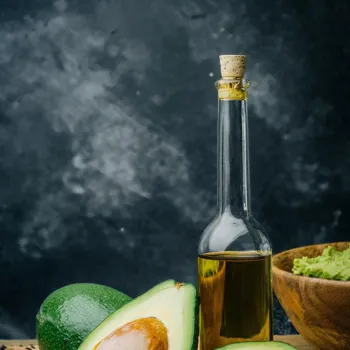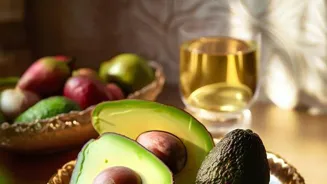Unlock the secrets of fats: Healthy vs. Unhealthy. Discover how fats impact your health. Dive into our guide now!
For years, fats have gotten a bad rap. Many folks think all fats are bad for you, leading
to weight gain and heart problems. But that’s simply not true! Fats are essential for our bodies to function properly.
The key is understanding the difference between healthy fats and unhealthy fats, and making smart choices about what we eat. This article will help you navigate the world of fats and make informed decisions for a healthier you.
It is about understanding that fats play a vital role in energy provision, hormone production, and absorption certain of vitamins. Choosing the right kind of fats and the right amounts is important for everyday health.
Our guide will give clarity and knowledge on how to make these important choices.
Healthy fats are essential for a healthy body, embrace avocados and nuts
Healthy fats are our friends, not foes! They provide energy, support cell growth, and help our bodies absorb important vitamins like A, D, E, and K. Think of them as the building blocks for a healthy and happy body. Some excellent sources of good fats include avocados, nuts, seeds, and certain oils.
We are going to delve deeper later into that, but for now remember these as the champions of healthy diets. These fats are often referred to as unsaturated fats, and they are the heroes of the fat world.
They can actually help lower bad cholesterol levels in your blood, reducing your risk of heart problems. So, embrace those avocados and sprinkle some seeds on your salad – your body will thank you!
Limit saturated and trans fats to reduce health risks
Now, let's talk about the fats we should limit or avoid. These are often called saturated and trans fats, and they can raise bad cholesterol levels, increasing the risk of heart disease and other health problems.
Saturated fats are often found in processed foods, fried items, and some animal products. Trans fats are often artificially made and added to some packaged snacks, baked good, and fried foods to make them last longer.
They are considered the worst type of fat, as they not only raise bad cholesterol but also lower good cholesterol. Reading labels carefully and making mindful food choices can help you significantly reduce your intake of unhealthy fats.
Remember that small changes can make a big difference in the long run and it is better to read the labels carefully.
Avocados, nuts, seeds, and olive oil offer heart-healthy fats and nutrients
Avocados are a fantastic source of monounsaturated fats, which are known for their heart-healthy benefits. These fats can help lower bad cholesterol and raise the good cholesterol, keeping your heart happy and healthy.

Plus, avocados are packed with fiber, vitamins, and minerals, making them a nutritional powerhouse. Nuts and seeds are also rich in healthy fats, including both monounsaturated and polyunsaturated fats. Almonds, walnuts, flaxseeds, and chia seeds are all excellent choices.
They are also good source of protein and fibre and provide essential nutrients. Olive oil is a cornerstone of the Mediterranean diet, known for its numerous health benefits.
It is rich in monounsaturated fats and antioxidants, which can protect your cells from damage and reduce inflammation in the body.
Decipher food labels for healthy fat choices, watch for hidden trans fats, serving sizes
Reading food labels can feel like deciphering a secret code, but it is crucial for making informed choices about your fat intake. Pay attention to the total fat content, as well as the breakdown of saturated, trans, and unsaturated fats.
Look for foods that are low in saturated and trans fats and high in unsaturated fats. Watch out for sneaky ingredients like partially hydrogenated oils, which are a sign of trans fats.
Manufacturers hide these facts within the food labels and the customers should be aware of any ingredient that has a hidden meaning. It is important to be sure from your end. Also look at the serving size. The labels are often designed in a way to mislead you.
Small diet changes boost health: lean proteins, plant sources, healthy fats, limit processed foods
Making small, sustainable changes to your diet can have a big impact on your overall health. Choose lean versions. Opt for plant-based sources of protein such as lentils and chickpeas. Use olive oil, avocado oil, or coconut oil in your cooking. Limit processed foods, fried foods, and sugary drinks.
Be mindful of portion sizes, as even healthy fats should be consumed in moderation. Remember, a balanced diet, regular exercise, and adequate sleep are all essential for a healthy and happy life.
By understanding the truth about fats and making smart choices, you can nourish your body and reduce your risk of chronic diseases.














